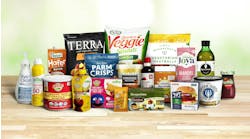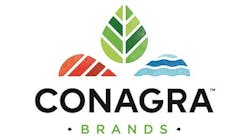Tyson Foods Inc. has joined what's becoming a growing list of food companies in the U.S. that are revising existing products in the wake of escalating health concerns. The Springdale, Ark.-based meat-producing giant announced on April 28 that it plans to halt the use of human antibiotics from its broiler chicken production. Tyson's goal is for its U.S. broiler flocks to be free of the antibiotics by the end of September 2017.
In a release, Tyson Foods, the largest U.S. poultry producer, stated it will report annually on its progress, starting with its fiscal 2015 Sustainability Report. Already, the company has ceased to use all antibiotics in its 35 broiler hatcheries, which require a veterinary prescription for antibiotics used on broiler farms, and says it has reduced human antibiotics used to treat broiler chickens by more than 80 percent since 2011. It also says it's working with independent farmers and others in its beef, pork and turkey supply chains to find ways of reducing such on-farm human antibiotics practices. Those groups will begin meeting this summer, Tyson says.
The move represents the latest of efforts by the food community and the livestock industry in particular to reduce the use of antibiotics crucial to human health in meat production.
“Antibiotic resistant infections are a global health concern,” explains Donnie Smith, president and CEO of Tyson Foods. “We’re confident our meat and poultry products are safe, but want to do our part to responsibly reduce human antibiotics on the farm so these medicines can continue working when they’re needed to treat illness.
Given the progress we’ve already made reducing antibiotics in our broilers, we believe it’s realistic to shoot for zero by the end of our 2017 fiscal year," Smith said. "But we won’t jeopardize animal well-being just to get there. We’ll use the best available treatments to keep our chickens healthy, under veterinary supervision.”
Often, chicken and cattle farmers employ small, accepted amounts of antibiotics, but concerns are mounting over the use of such antibiotics in these operations, because they may spur the growth of stronger bacteria that could be weakening immunity in consumers.
Tyson Foods also stated that its international business is committed to taking similar measures on antibiotic use in its global chicken operations but has not set a timeframe.
Smith says the company plans to work with food industry, government, veterinary, public health and academic communities and provide funding to hasten research into disease prevention and antibiotic alternatives on the farm. “One of our core values is to serve as responsible stewards of animals–we will not let sick animals suffer,” he reports. “We believe it’s our responsibility to help drive action towards sustainable solutions to this challenge by working with our chicken, turkey, beef and pork supply chains.”
Pilgrims Pride Corp., the second-largest poultry processor in the U.S., has also reported that it will be eliminating all antibiotics from a quarter of its chicken production by 2019, a boost of about five percent currently.

